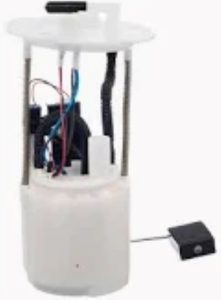It requires fuel pump calibration to accurate fuel supply which is important for engines in terms of performance, emissions and fuel economy. Today, fuel pumps are computer controlled to keep the fuel pressure in a very tight range and when there are very high performance, or turbocharged engines, this is done as nearly as possible (usually to 40 to 70 PSI). Slight variance in fuel pressure translates to less efficient combustion and emission excess, and without proper calibration it can reduce fuel efficiency by 10 percent due to poor air-fuel ratios.
This calibration also allows the flow of fuel to be constant, which is an important characteristic for those engines that have fuel injection systems. An engine that generates 300 horsepower generally requires about 180 liters of fuel per hour at constant pressure. This flow rate can vary with a miscalibrated pump and could cause problems such as engine knocking, stalling and overheating. The(tuning) industry lends much of its collective voice to the consensus that this lack of calibration is a primary reason for these performance shortcomings in older vehicles.
Misfueling can lead to damage to other elements in the engine as well. Pumps that are miscalibrated might overload injectors, clog gas lines, and create a carbon deposit in the combustion chamber, which may reduce the lifespan of critical engine components by as much as 20%. It really is about the right precision in your truck calibration for engine life and performance, according to automotive engineer John Gordon. That outlook plays into a bigger picture, which is having fuel systems properly maintained in order to avoid extensive wear and costly repairs down the road.

This is particularly important in areas like aviation and motorsport where engine reliability is key and hence why fuel pump calibration can be pivotal. An example of this is in 2021 when the National Transportation Safety Board (NTSB) reported that engines on a few small aircraft failed due to pumps that had been improperly calibrated, highlighting how precision is critical when it comes to fuel delivery systems.
Frequent calibration protects against or variations in fuel class — like ethanol-blended fuels. The unique properties of ethanol have a direct impact on fuel density and viscosity which can change flow characteristics. Because there can be some variance from pump to pump, the ability to calibrate the pump helps ensure there are no performance deficits with the engines running ethanol blends.
Fuel pump calibration is, therefore, just part of the necessary work to keep any engine running efficiently and reliably, regardless of vehicle type. A properly calibrated Fuel Pump keeps engines running smooth while optimizing fuel economy and emissions for reliable and repeatable performance.